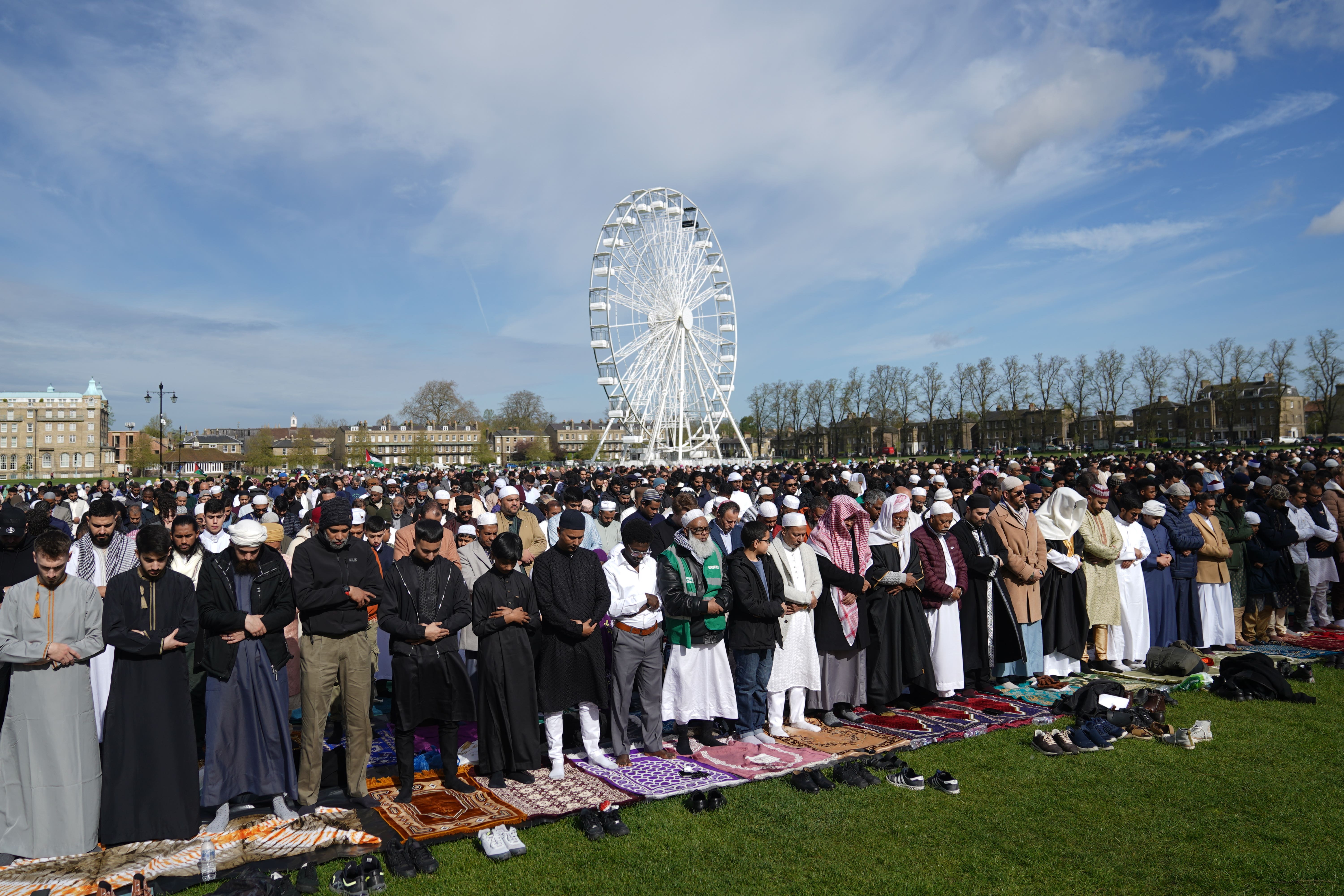Thousands gather across the UK to celebrate Muslim festival of Eid
Eid al-Fitr, which means the festival of sweets, marks the end of Ramadan, a month-long period of fasting and prayer for Muslims.

Your support helps us to tell the story
From reproductive rights to climate change to Big Tech, The Independent is on the ground when the story is developing. Whether it's investigating the financials of Elon Musk's pro-Trump PAC or producing our latest documentary, 'The A Word', which shines a light on the American women fighting for reproductive rights, we know how important it is to parse out the facts from the messaging.
At such a critical moment in US history, we need reporters on the ground. Your donation allows us to keep sending journalists to speak to both sides of the story.
The Independent is trusted by Americans across the entire political spectrum. And unlike many other quality news outlets, we choose not to lock Americans out of our reporting and analysis with paywalls. We believe quality journalism should be available to everyone, paid for by those who can afford it.
Your support makes all the difference.Thousands of people have gathered across the UK to celebrate the Muslim festival of Eid.
Eid al-Fitr, which means the festival of sweets, marks the end of Ramadan, a month-long period of fasting and prayer for Muslims.
More than 4,000 worshippers gathered for morning prayers at Parker’s Piece, Cambridge, and families queued for ice cream in the park.
Palestinian flags could be seen in the crowd.
Elsewhere, people congregated for morning prayers at Green Lane Masjid in Birmingham.
Muslims marked the festival worldwide.
Worshippers in Turkey carried Palestinian flags, and preachers in Jakarta, Indonesia, urged people to pray for Muslims in Gaza.
On Tuesday, Gaza received the largest international aid airdrop since the conflict began – the delivery of hundreds of tonnes of resources coinciding with Eid.
The UK joined eight other countries to carry out the aid drop.
Palestinians in Gaza marked the Eid holiday by visiting the graves of people who have been killed in the war.